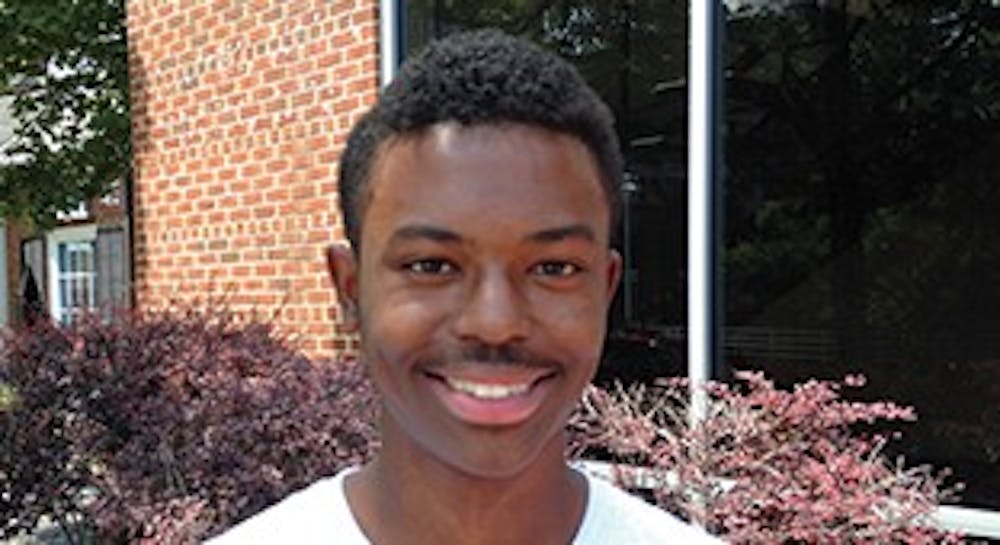Ishmael Bishop, a member of The Daily Tar Heel's editorial board, is on a mission to go to as many of the UNC Student Body President debates and forums as he can manage. Here are his thoughts on Tuesday night's performances.
Question for all the candidates: what are you currently doing to support and/or encourage women, specifically women of color, to run for the seat of student body president?
The race for student body president is well underway. Hopefuls Bradley Opere and Wilson Sink have quickly captured the attention of many a campus activist, busy-body and some folks deeply involved within student government. With the first couple debates of the season out the way, one hosted by UNC Student Congress followed by a second forum hosted by the Dialectic and Philanthropic Societies (DiPhi), it’s time for a second opinion on these candidates: mine.
Unfortunately for the Opere campaign, an insufficient number of petition signatures turned into the Board of Elections meant he was unable to continue to the debate round of this race. After such a close call it would be wise collect as many signatures as possible in the interim. The Opere campaign might want to reconsider its organizing after missing this crucial mark.
In Opere’s place and on his own right, out-of-nowhere candidate, John Taylor, opposed the well-presented Wilson Sink in a debate that clashed North Carolina modernity (Sink) against its backcountry (Taylor). While this campaign lacks a certain diversity (in regard to gender, sexuality, ability, etc.) it includes men of various socio-economic statuses, religions, origins and Greek affiliations. However, it is strange not to see a female candidate or a strong conservative at all. While it is important that we all take an interest in eliminating gender-based violence, i.e. sexual assault and barriers to reproductive care, women identified folk are more than capable of speaking on these topics and should be able from the seat of student body president. With the last four student body presidents being white men, a change in tone and tenor within the office is welcomed.
Student Congress Debate
The first debate, inside a crowded lecture hall, began with asking both candidates to comment on the “divisiveness” between UNC students. Sink took an early lead in this debate and spoke to “building bridges” and “collaboration.” Taylor, not to be outdone proposed a similar solution, albeit obscured by his propensity to ramble.
Which brings me to an important point: rhetoric. Taylor’s style of going off on a tangent might work for BS’ing a lengthy senior thesis, but unfortunately it does not go unnoticed here. Throughout the first debate, Taylor spoke to the lack of transparency in student government, an entity in theory meant to represent the student body at large, and how if elected he would work to include and collaborate with more students outside of student government. “Increasing connections”, Taylor said, would be his “number one goal.”
Afterward, Taylor was asked to speak to his lack of involvement within student government and how he attempted to learn the complicated ins and outs in time to become effective. Taylor responded with a story about his football career, which he called, “terrible.” However, it can't be said that this nostalgia was absolutely ineffective. In the end Taylor’s charm, rather than his demonstrable capability to serve as student body president, won him the motion put forth by student congress.




